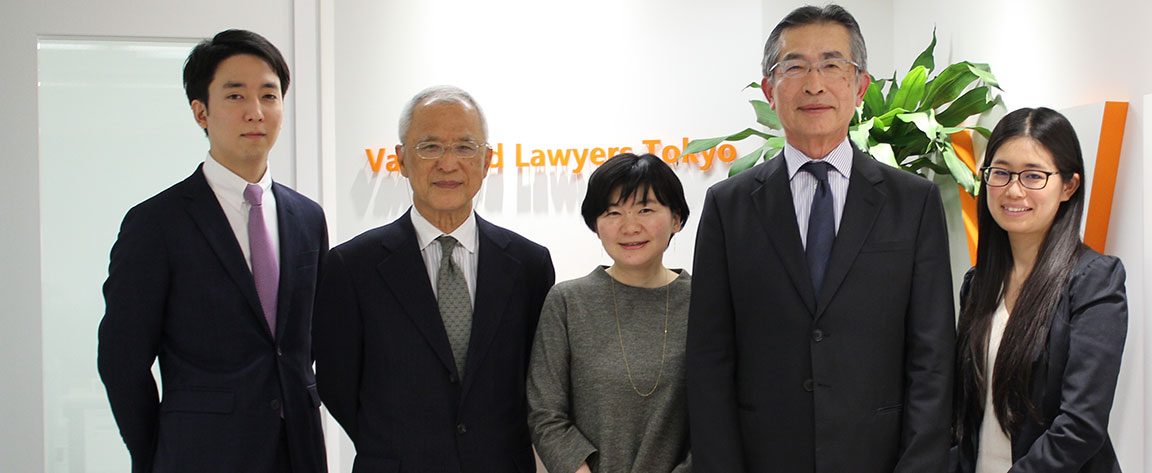Navigating the complex waters of Japanese law can be daunting. If you are a global corporation operating in Japan, it can seem as though there are rigid rules but few alternatives when it comes to your legal needs. Vanguard Lawyers Tokyo offers multinational clients creative solutions together with proactive and practical Japanese legal advice.
“We wanted to set up a boutique firm that focuses on providing high-quality Japanese legal advice to global firms with operations in Japan”, said Akiko Yamakawa, a partner at Vanguard.
The firm is the result of an amicable spin off from the Tokyo office of global law firm Freshfields Bruckhaus Deringer. Yamakawa joined Freshfields in 2000, preceded by Naoki Kinami in 1998 and Kazuki Okada in 1999, who are both partners at Vanguard. At the time, there was plenty of inbound work but, when the global financial crisis hit, the focus changed.
“The employment practice, the domestic disputes and investigations practice and the financial regulatory practice continued to focus on inbound work, whereas Freshfields globally—and the Tokyo office—started to focus more on outbound work, which I think was the right strategy for Freshfields Tokyo, as a global firm”, said Yamakawa. “But for those of us doing inbound, we lost the synergy with the rest of the office”.
Vanguard was founded in September 2017 by the aforementioned partners. Each of them is highly ranked in their respective practice areas in widely circulated international legal directories. The firm focuses primarily on non-Japanese clients.
The practice
The firm’s expertise lies in three niche and highly specialised areas: domestic disputes and investigations, employment practice and financial regulatory practice. And it is in these areas that Vanguard believes global firms will be looking for highly specialised lawyers.
One issue many non-Japanese firms face is trying to adapt global practices to Japan, and often such clients are turned down by Japanese lawyers. Vanguard, meanwhile, focuses on finding creative ways to maintain the global practices of multinational corporations while matching their needs to the regulatory environment in Japan.
“They want us to be creative, proactive and solution oriented, which is different to normal lawyers in Japan”, Yamakawa said.
Kinami added, “We are aiming at high-quality legal advice, and we will not do labour-intensive Japanese legal advice, such as corporate due diligence. Those three areas are the ones where we can provide that service without the usual Japanese practices”.
With the employment practice well established, the firm now hopes to expand its domestic disputes and investigations practice, including the types of disputes it handles and its client base. “Actually, half of my work is general commercial disputes, such as representing financial institutions in disputes relating to complex financial instruments”, said Okada. In addition, the firm is looking to start a new team on the financial regulatory side.
“Within the first three years we want to grow to about 10 lawyers, which is double our size now, and after that it depends on the market”, Yamakawa explained.
The firm is also focused on ensuring a good work–life balance, a notorious problem within the legal profession. “We want to be more creative around work styles in the office. We want to focus on the best quality of work and best quality of life”, said Okada.
Wider issues
When it comes to Japanese litigation and investigations, it is very different from common law jurisdictions. In fact, there is no privilege or discovery, and there is no jury system in civil litigation. Language is another factor that needs to be taken into account, along with Japanese cultural norms.
The employment system, which traditionally is for life or for the long term, means termination is very difficult. For foreign firms that are used to adopting a hiring and firing approach in other countries might think that it is not possible in Japan as it is not typically practiced in the country, but it can still be done, Yamakawa noted.
“On the employment side, Japanese employment law is very different from European or American law, so we see there is quite a lot of need for advice in that area”, she said. And when it comes to regulations, the approach is totally different again.
“Japanese lawyers tend to look at the regulation and text very closely, often short-sightedly—what you can and cannot do—and that is the end of the advice. But what I am trying to do is look at the regulatory environment, the requirements and take a multi-angle approach based on the client’s needs and then help them decide what direction to take”, Kinami explained.






